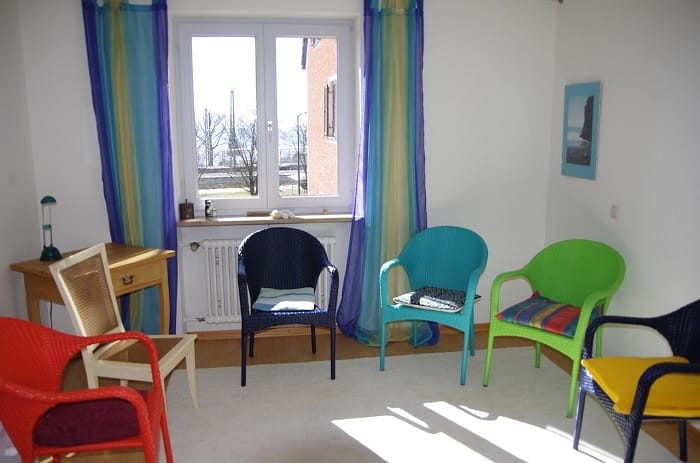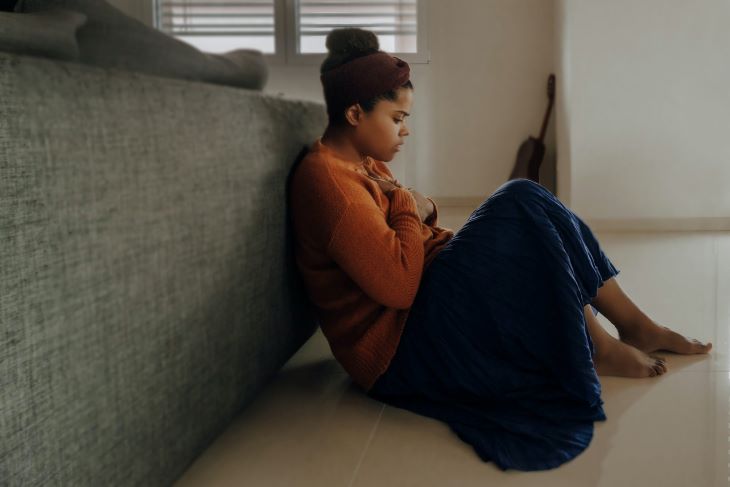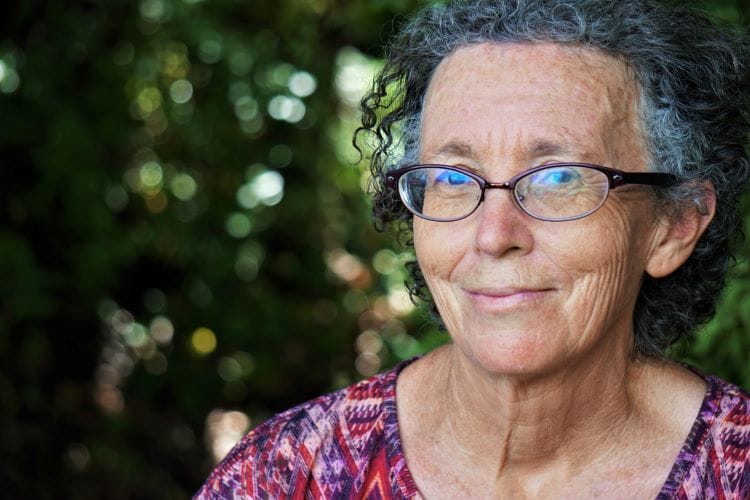Looking after your mental health is just as important as looking after your physical health. Across the UK, more people than ever are talking about their mental wellbeing.
In Leicester, it’s no different. The city is buzzing with support groups, services, and conversations about how to stay mentally healthy.

Leicester is a brilliant, diverse place to live. But it’s not without pressures.
Things like money worries, job stress, loneliness, and cultural expectations can all affect how you feel day-to-day.

If you’re struggling with your mental health, you’re definitely not alone. Thousands of people across Leicester feel the same way every day.
Knowing what’s going on can help you find the right support and take the first steps to feeling better.
Some mental health issues pop up more often than others. The ones people talk about most in Leicester include:
You might feel just one of these. Or you might notice a mix of different feelings. Either way, it’s completely normal to need some help.

Life pressures have a big impact on your mental health. Leicester has some brilliant opportunities, but also its fair share of challenges.
These are not small problems. They build up and can easily wear you down.
Leicester is one of the most multicultural cities in the UK, which is something to be proud of. But cultural pressures and expectations can sometimes add extra layers of stress.
If any of this sounds familiar, you’re not alone. There are services in Leicester that understand these challenges and are ready to help you in ways that respect your background and experiences.

Getting help for your mental health can feel like a big step. But in Leicester, there are lots of NHS services ready to support you. You don’t need to handle everything on your own.
If you’re feeling low, anxious, or overwhelmed, the best place to start is with your local doctor.
You don’t need to know exactly what’s wrong before you book an appointment. Just telling your GP how you feel is enough to get the ball rolling.


In Leicester, there are community mental health teams that work across the city and nearby areas.
These teams are made up of different professionals like doctors, nurses, social workers, and therapists.
Their job is to help you manage your mental health in everyday life. They can:
Most people who get help from these teams are referred by their GP. So, if you think you might need this kind of support, it’s important to talk to your doctor first.
Sometimes talking to someone trained to listen can make a huge difference.
In Leicester, you can get free talking therapies through a service called “Let’s Talk-Wellbeing”.
You don’t even have to wait for a GP referral if you don’t want to. You can refer yourself online or by phone.
Talking therapies can help with:
You might be offered treatments like cognitive behavioural therapy (CBT), counselling, or guided self-help sessions. All designed to help you manage your thoughts and feelings better.
How to Access Talking Therapies:
The sooner you reach out, the sooner you can start feeling more like yourself again.

If you live in Leicester and need mental health support, chances are you’ll come across the Leicestershire Partnership NHS Trust, or LPT for short.
They are the main organisation running mental health services across Leicester, Leicestershire, and Rutland.
LPT is there to make sure you get the right help at the right time. They provide care in hospitals, clinics, and out in the community.
Whether you’re facing a tough patch or dealing with a longer-term condition, LPT has services to support you.
Their teams include doctors, nurses, therapists, social workers, and support staff, all working together to help you get better and stay well.

Here’s a quick look at some of the main mental health services run by LPT:
There are a few ways you can access support:
If you think you need help, don’t wait. Reaching out is a sign of strength, and there’s a lot of support ready for you in Leicester.

If you prefer to get help quickly or want more choice over who you see, you might think about private mental health care in Leicester.
It’s an option more people are looking into, especially if NHS waiting lists are long.
There are many trusted private therapists and clinics you can turn to. Some of the well-known ones include:
Prices for private therapy in Leicester can vary. On average:
Most private therapists offer a free phone call before you commit. This gives you a chance to ask questions and see if they feel like the right fit.
If you have health insurance, it’s worth checking if it covers mental health support too.

Private therapy usually means:
But it’s important to know that private care doesn’t always mean better care. NHS services are excellent too. It’s about what fits your needs and situation best.

You don’t have to go through mental health struggles on your own. In Leicester, there are amazing charities and community groups ready to help you.
Sometimes talking to someone who gets it, or joining a support group, can make a huge difference.
Here are a few local names you should know:
Each of these charities is friendly, welcoming, and used to supporting people from all walks of life.

Depending on what you need, you can find:
Many of these services are either free or very low cost, which makes them accessible even if money is tight.
If you feel ready, you might even want to give back by helping others. Volunteering can be a great way to boost your own wellbeing too.
Most charities have easy online forms you can fill out if you want to volunteer. Even giving a few hours a month can make a real difference — for you and for others.

Everyone’s mental health journey is different. Sometimes you might need support that really understands your background, your identity, or your age.
In Leicester, there are services that offer exactly that.
Mental health problems can affect anyone, at any age. If you’re a young person struggling, or if you’re worried about your child, there’s lots of support available in Leicester.
You don’t have to cope with it alone.

CAMHS stands for Child and Adolescent Mental Health Services. It’s part of the NHS and helps young people under 18 with mental health problems.
You can turn to CAMHS if you’re dealing with things like:
Usually, a GP, teacher, or social worker will refer you to CAMHS if they think you need extra help. Sometimes, you can also get advice directly by contacting your local CAMHS team.
Waiting lists can vary, so it’s a good idea to reach out as early as possible if you think support might be needed.

Most schools and colleges in Leicester now have mental health support available. You might find:
If you’re a parent reading this, talk to your child’s school about what’s available. Every little bit of support helps.
You can also find extra support outside of school through local youth groups. Some great options include:
Many of these groups also have ways for parents and carers to get advice too. So you’re not left worrying on your own.

Leicester is one of the most diverse cities in the UK. This is something to be proud of, but it also means mental health services need to be inclusive and sensitive to different cultures.
You can find support that understands the unique challenges you might face, like:
Charities like The Race Equality Centre in Leicester work to make mental health services more accessible.
Many local counselling services also offer therapists who speak different languages or have experience working with diverse communities.
If it feels easier, you can ask for a therapist who shares or understands your background when you look for help.

If you identify as LGBTQ+, it’s important to know there’s mental health help that respects and celebrates who you are.
In Leicester, places like Trade Sexual Health offer support groups, counselling, and advice specifically for LGBTQ+ people.
You can also find LGBTQ+ friendly therapists through national organisations like MindOut.
Common struggles for LGBTQ+ people include:
These are tough challenges, but you don’t have to deal with them on your own. Support is out there, from people who really understand.
Growing older brings its own set of mental health challenges. Things like loneliness, grief, and health problems can all impact how you feel.
In Leicester, there are services aimed at supporting older people, including:
If you’re an older adult, or you’re worried about someone you know, reaching out to these services can make a big difference. It’s never too late to work on your mental wellbeing.

Getting help from others is important. But there’s also a lot you can do on your own to look after your mental health.
Even small changes can make a big difference over time.
If you want support at your own pace, there are loads of free and easy tools you can use:
You can use these when you have a quiet moment, whether that’s in bed, on a lunch break, or while walking.

You don’t need to be an expert to start improving your mental wellbeing.
Even a few minutes a day can help you feel calmer and more in control.
Building your mental strength doesn’t mean making big changes overnight. It’s about small, regular steps.
Try adding things like:
Each small habit builds your resilience, helping you bounce back when life feels tough.

If you’re looking for simple ways to boost your mental health, the Five Ways to Wellbeing are a great place to start.
They’re small, everyday actions that can make a real difference to how you feel.
Feeling connected to others is one of the biggest boosts for your mental health.
In Leicester, there are loads of community groups where you can meet new people and feel part of something.

Being active isn’t about running marathons. It’s about finding movement you enjoy.
Moving your body releases feel-good chemicals that lift your mood.[4]
Life can rush by if you let it. Taking notice means slowing down and paying attention to what’s around you.
These small moments of mindfulness add up.

Learning new things keeps your brain healthy and builds confidence.
It doesn’t matter what you learn — it’s the act of learning that counts.
Doing something kind for someone else can make you feel great too.
Even small acts of kindness can boost your own wellbeing.

Good mental health support doesn’t stop when you leave the doctor’s office. In Leicester, schools, colleges, universities, and workplaces are stepping up to offer real help too.
If you’re a student, there’s more help out there than you might think.
If you’re struggling, you don’t have to handle it on your own. Just asking a teacher, tutor, or the wellbeing office for help can be the first step.

Work can be stressful. Deadlines, long hours, or difficult colleagues can take a toll. But many workplaces in Leicester now offer mental health support to their staff.
Look out for:
If you’re not sure what’s available at your job, it’s worth asking HR or checking your staff handbook. You might be surprised how much help is there.
Some workplaces and universities even offer Mental Health First Aid courses.
These teach you how to spot the signs when someone else might be struggling and how to support them.
It’s a great skill to have — for your own life and for the people around you.

Sometimes mental health problems can reach a point where you or someone you know needs urgent help. Knowing where to turn in a crisis can make all the difference.
If you or someone else is in immediate danger, always call 999 for emergency help.
If it’s not a life-threatening emergency but you still need urgent mental health support, you can:
Don’t ever worry about reaching out. If you need help, you deserve it — right now, not later.

Leicester has specialist crisis teams who can help you during a mental health emergency.
They can visit you at home, arrange for a hospital stay if needed, or simply listen and help you feel safe again.
You can also contact:
If you’re waiting for help or feeling overwhelmed:
Even in the darkest moments, there is help, and there is hope.

When you’re looking for mental health help in Leicester, it’s normal to have lots of questions.
Here are some of the ones people ask most often — and simple answers to guide you.
Leicester has a wide range of services, including NHS support through GPs and community teams, private therapy options, and local charities like Lamp and Mind.
You can get counselling, talking therapies, crisis help, and long-term mental health care depending on what you need.

The easiest way is to speak to your GP. They can refer you to free NHS services.
You can also self-refer to the Let’s Talk-Wellbeing programme for talking therapies.
Charities like Lamp and Relate also offer free or low-cost support.
Yes, there are. Mind Leicester runs peer support groups, and many community centres across the city host regular meet-ups.
These groups give you a safe space to talk, listen, and connect with others who understand what you’re going through.

If it’s an emergency, call 999. If you need urgent but not emergency help, call NHS 111 and press option 2.
You can also contact the local crisis team or the Samaritans at 116 123 any time, day or night.
Young people can get help through school counsellors, their GP, or by being referred to CAMHS (Child and Adolescent Mental Health Services).
Charities like The Bridge and YoungMinds also offer extra support for young people and their families.

Taking care of your mental health is one of the most important things you can do for yourself. And the good news is, you’re not alone.
Whether you need a quick chat, long-term support, or just a few tools to feel better day-to-day, there’s help available right here in Leicester.
You don’t have to wait until things get worse. Reaching out early can make a big difference.
Whether you start by talking to your GP, signing up for a workshop, or even just opening up to a friend, every small step counts.
Remember:
If you’re ready to take that first step, Leicester has your back.
[2] https://www.leicester.gov.uk/media/czpjhywe/leicester-health-and-wellbeing-survey-2024.pdf
[3] https://researchbriefings.files.parliament.uk/documents/SN06988/SN06988.pdf
[4] https://www.health.harvard.edu/staying-healthy/exercising-to-relax?utm_source=chatgpt.com